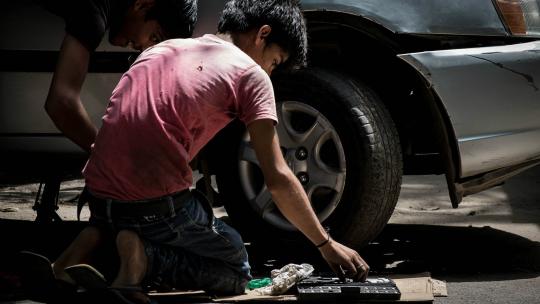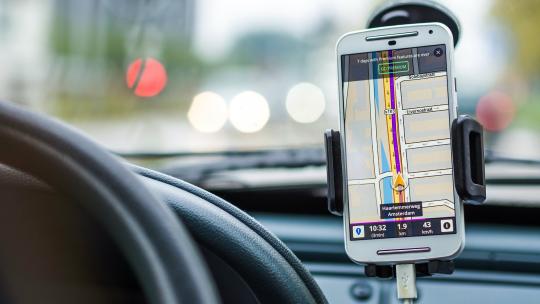
The truth is, most of us go on long car journeys for a very simple reason: it’s because we have to get somewhere far away from home. Therefore, the priority is on completing the drive, not on making friends. This premise is the building block to this how-to guide for traveling by car on the long, long haul.
Driving from Point A to Point B doesn’t need planning and preparations at all as long as the drive in question is down to the shops, a few miles from the place you live. What I’m referring to is grand touring, also known as the type of journey that necessitates lots of hours of driving, lots of awareness to the act of driving, a handful of stimulants, as well as a little bit of forethought.
To quote the title of a fan favorite from Willie Nelson, keep the following tips and tricks in mind next time you find yourself on the road again. Here goes:Before You Set Off

The most crucial aspect of a long journey is your car. If your vehicle, be it a European econobox or a magnificent grand tourer such as the 2016 BMW 6 Series Convertible, is not in tip-top condition, you’re likely to get stranded on the freeway shoulder. First and foremost, check if the tire pressure is normal when the tire is in contact with the ground. Then check if the spare is good. If your trunk can’t accommodate a spare, then good luck with a tire repair kit.
Following tires, the next thing you need to check is your vehicle’s lights and indicators. All good? Great! The next step is all about fluids. Does your engine have sufficient oil? What about engine coolant? Windshield washer fluid? Also, inspect the V-belts or serpentine belt for fraying, splitting or glazing. If the working edge isn’t shiny from wear, then you’re all set! Now that the basics were covered, you need to plan your route before you get going.
The best advice I have regarding this subject of matter is always keep close to the main roads. The slightly faster choice is to plan your route differently from what Google Maps recommends, but secondary roads have this habit of surprising you in the more unpleasant meaning of the word. A paper map, a smartphone with satellite navigation or an automotive navigation system are convenient whether you decide to take the main or secondary roads.
As for the final detail on the checklist, be sure to have a sufficient amount of cash on you for fill-ups, food, beverage, and lodging. If you’re on a tight budget, don’t forget to pack a blanket if you plan on taking a power nap in your car. Also, keep in mind that some places do not accept card. And on that note, make sure you’ve slept enough before the start of your road trip.On the Move

And off you go! Hope you haven’t forgotten to take a sizable flask of Arabica coffee, a couple of energy drinks, and some beef jerky with you. Oh, you forgot? Never mind. Happily, those things can be acquired at most gas stations throughout the United States. If you’re from the United Kingdom, that’ll be the services. Beef jerky isn’t too popular in the UK, so that’s that.
Right, on the move. There are plenty ways of keeping yourself entertained on the long haul, even when you’re riding solo. My favorite of the lot comes in the form of audio books, partly because I can’t read a book while driving.
Another benefit of listening to audio books while driving is interest. Hearing a man speak about how he was pecked to death by ducks will keep me more entertained than a mixtape can. Other than that, audio books don’t tire me.
S**t music on the radio, however, does. Remember what happened to that Kowalski guy in that Vanishing Point movie? He charged his 1970 Dodge Challenger R/T 440 Magnum head on into a frigging bulldozer because he was totally fed up with Super Soul’s disc jockeying. I might be wrong, though.
Petty jokes aside, cruise control is another little helper that makes long car journeys less of a burden. Adaptive cruise control is even better because it automatically adjusts the vehicle speed to maintain a safe distance from cars ahead. Another rule of thumb is always drive safely. It’s better to follow the rules instead of being sorry. So please, don’t go over the speed limit, never ever hog the fast lane, don’t text and drive, you know the drill.
During busy travel times, when traffic gets way out of control, it’s better to loosen up rather than getting worked up about it. If the traffic is so horrible you’re stationary most of the time, there’s no way around it other than to pucker up your stiff upper lip and let everything sort itself. The best way to sidestep traffic is to leave at an hour when the possibility of bad traffic is close to zero. Think very, very early in the morning or very, very late at night.
On the other hand, I also recommend having a loose plan. Whenever you hit traffic, don’t let misery smother you. Instead, check Waze, Google Maps, whatever navigation app with live traffic updates you have on your phone for a route that bypasses the gridlock ahead of your planned route. If no “Road Work Ahead, Merge to One Lane”message pops up, then you’re good to go. Don’t, however, get the idea that you’re the only driver out there who thought of making a detour. Outsmarting traffic is a double-edged sword.
Last, but certainly not least, the danger of falling asleep at the wheel or getting distracted from fatigue is real. To prevent these from happening, it’s utmost important to take short brakes if you plan on driving long distances.
A 10-minute pit stop every two or three hours is how I roll. A bit of stretching and a jumbo-sized coffee don’t hurt either. Also, some medicines may cause drowsiness. Be sure to check precautions printed on the pack. It’s crucial to abide by that an age-old saying that goes like “an ounce of prevention is better than a pound of cure.” That said, have a safe trip!








